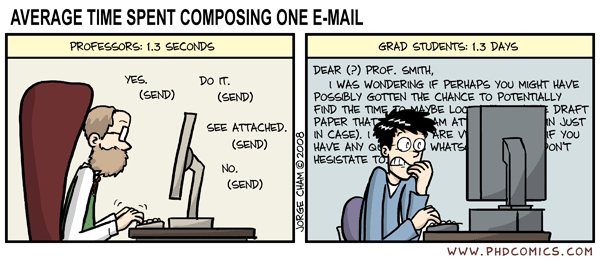The public thesis defense is a strange thing. The author is defined as a PhD student (with a focus on the idea of the student) is in fact the expert on the topic being discussed. It is he or she who has the best grasp of the data and all the reasons why the finished book looks the way it does.
Surrounding the author (for the student is also an author) is the supervisor or supervisors. This wise man or woman (sometimes more than one) has acted as a sounding board and guided the student in the production of the work. It is also the supervisor who eventually decides when the work is ready to be defended.
This is followed by a group of four academics that will act as the opponent and the examination committee. Beyond this group of five or six people the rest of the audience have not read the work in its entirety.
This is not to say that they never have had the opportunity. The thesis in Sweden goes through an arcane rite of nailing (spikning) where the author often still physically nails his thesis in a publically available place at least three weeks before the defense.
But in general the audience – a group of colleagues paying respect, family bursting with pride, friends genuinely happy but often confused by the act, young PhD students eager to learn and the occasional odd man from the street interested in the topic – have not seen the text and a vague idea of the topic.
The audience follows the affair from the outside. The chairman introduces and often explains the importance of the act: it is an initiation an introduction and an acceptance. The student is given then opportunity to correct any minor flaws he or she may have discovered in the weeks leading up to the defense (mainly typos).
The central role of the defense is held by the opponent who begins by describing the work at hand and then leads the following discussion by asking probing questions and discusses the reasoning and arguments behind the book. This is not done to “catch out” the student but rather to understand the book that is being examined. It is through this discussion that the examination committee has the opportunity will have a chance to see the character and ability of the student.
Once the opponent is done the chairman opens the floor to questions from the audience and here rumors and horror stories flow among PhD students of spiteful old academics showing up after having read the public copy and ask impossible questions in order to demolish the student.
When this public phase is closed the examination committee, the chairman, the opponent, the supervisor move to the closed part of the examination process. All of them have the right to speak but only the three-member examination committee has the ability to vote and a majority is needed to pass. This may seem easy but since the closed group all form part of a social network they can in reality not decide as freely as it may seem. Here past, present and future alliances and antagonism may form and shape the discussion at hand.
If the open process takes around two hours the closed process takes anything between one to over six hours (the latter is very uncommon but I know of two occasions).
The public defense swings between the vital to the laughable but it is always an event that is key in the maturing of any academic. Whiskey and wine are stored in a barrel in an evenly acclimatized subterranean hole to emerge the better for it. The process may not be exciting to watch but the result is worth waiting for.


